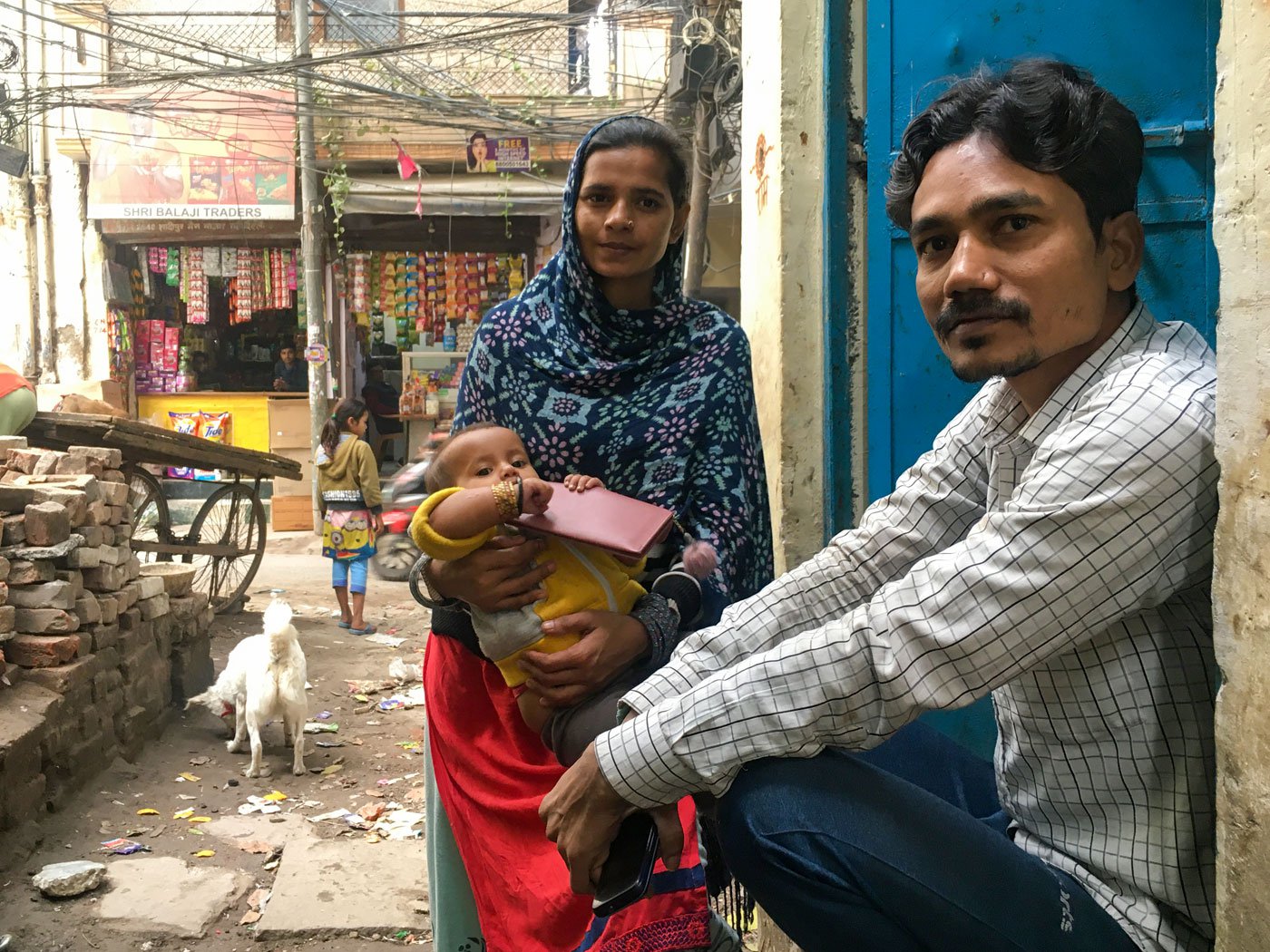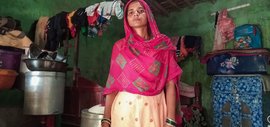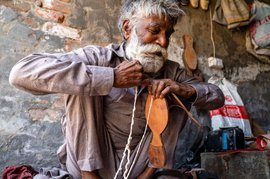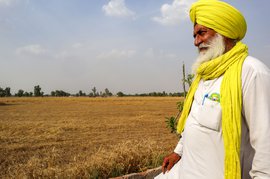Rukhsana Khatoon thought she no longer had to worry about feeding her family. It was November 2020 and, after a third attempt that dragged out over two years, she had just received a ration card. Suddenly, the worst months of the pandemic year appeared to be behind them.
It was a ‘priority household’ card, a category under the
National Food Security Act
(NFSA), 2013, for which eligible beneficiaries are identified by state governments.
It bore the address of their native home where they were living at the time – in a village recently merged into a dusty municipal council area in Bihar’s Darbhanga district. Rukhsana could finally get subsidised rations for her family of seven.
Then they all moved back to Delhi in August 2021, and getting foodgrains that her family is legally entitled to, once again hit a snag.
Under the central government’s
One Nation, One Ration Card
(ONORC) scheme, beneficiaries of the NFSA – categorised under ‘priority households’ and ‘poorest of the poor’ – are entitled to collect their quota of foodgrains from any fair price shop. The shops are licensed to distribute commodities under the Public Distribution System (PDS), using Aadhaar-linked biometric authentication. But each time Rukhsana visited the nearest fair price shop in the Shadipur Main Bazaar area of West Delhi for her monthly quota, the electronic point-of-sale (ePOS) machine read: ‘Ration card not found in IMPDS’.
While foodgrains are allocated by the union government to states for distribution under the
PDS
, the Integrated Management of Public Distribution System (
IMPDS
) was set up in 2018 to allow eligible migrants to collect their entitlements from anywhere in the country under the ONORC scheme.
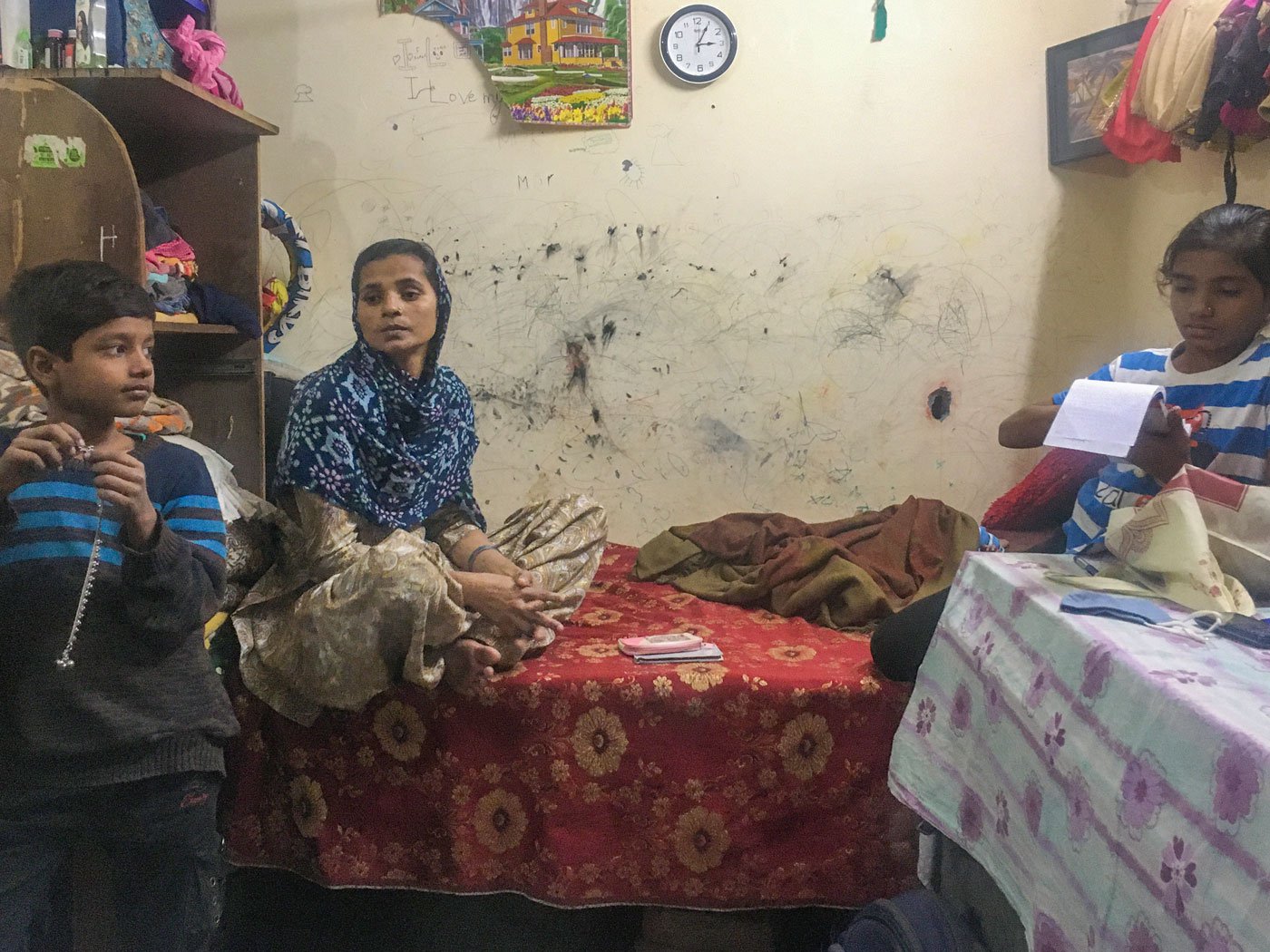
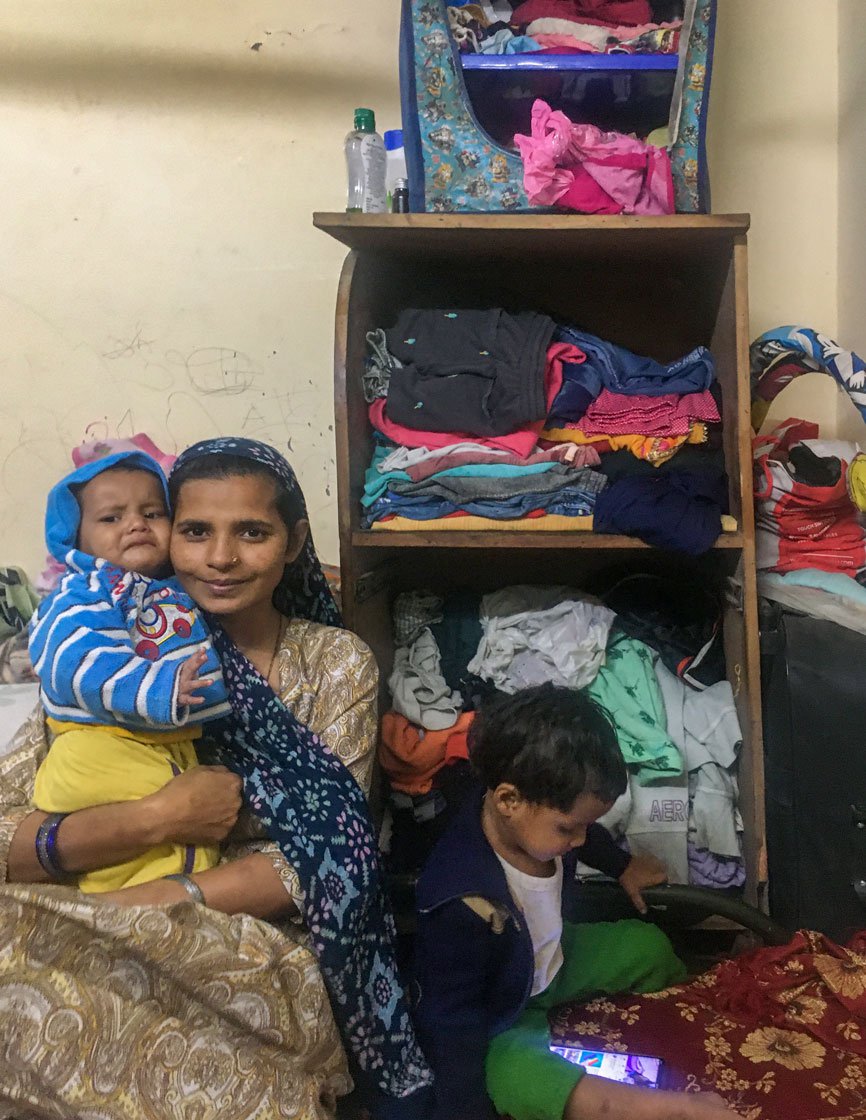
Left: Rukhsana Khatoon and her eldest children Kapil and Chandni in their rented room in Shadipur Main Bazaar area of West Delhi. Right: Rukhsana holding her youngest daughter, Asiya, while her three-year-old daughter Jamjam plays with her phone
In October 2020, PARI reported that Rukhsana, a domestic worker in Delhi, was desperately trying to procure a ration card , her family’s finances in a downward spiral following the Covid-19 lockdown. She had to queue up at free food distribution drives, and finally, still without work or access to foodgrains under the PDS, she returned to Darbhanga with her children.
Weeks after PARI published her account, officials visited Rukhsana in Bihar, verified the family’s Aadhaar cards and later issued her a ration card.
“In Bihar, one just had to place their thumb [on the ePOS machine enabled with a fingerprint scanner] and we would get our ration,” she said. Her 11-year-old son or 13-year-old daughter could also bring home their foodgrains if she couldn’t go. “
Jab sab online hua hai, phir kyun nahi aa raha yahan
[When it is all online now, why aren’t we able to see the details here (in Delhi)?]”
Rukhsana, 31, her husband Mohammed Wakil, 35, and their five children returned to Delhi on August 25, 2021 by train. She resumed working as a domestic worker in four houses in West Delhi’s Patel Nagar, earning Rs. 6,000 a month. Wakil, who had closed down his tailoring shop in November 2020 before also returning to Bihar, finally found regular work in March 2022 as a tailor in the Gandhi Nagar Market in North East Delhi, for Rs. 8,000 a month.
Before the Covid-19 lockdown in March 2020, the couple’s combined earnings were nearly Rs. 27,000 a month.
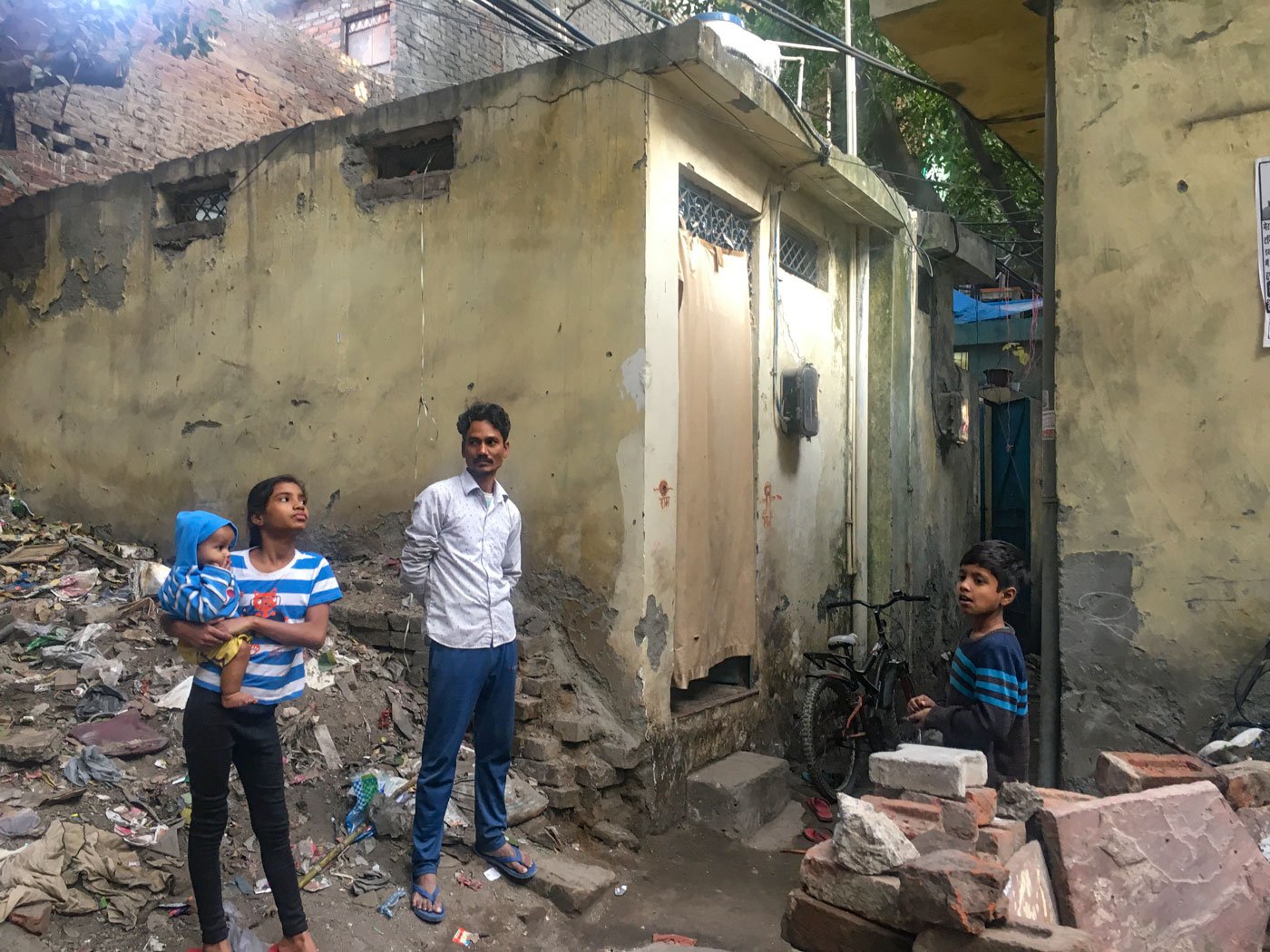
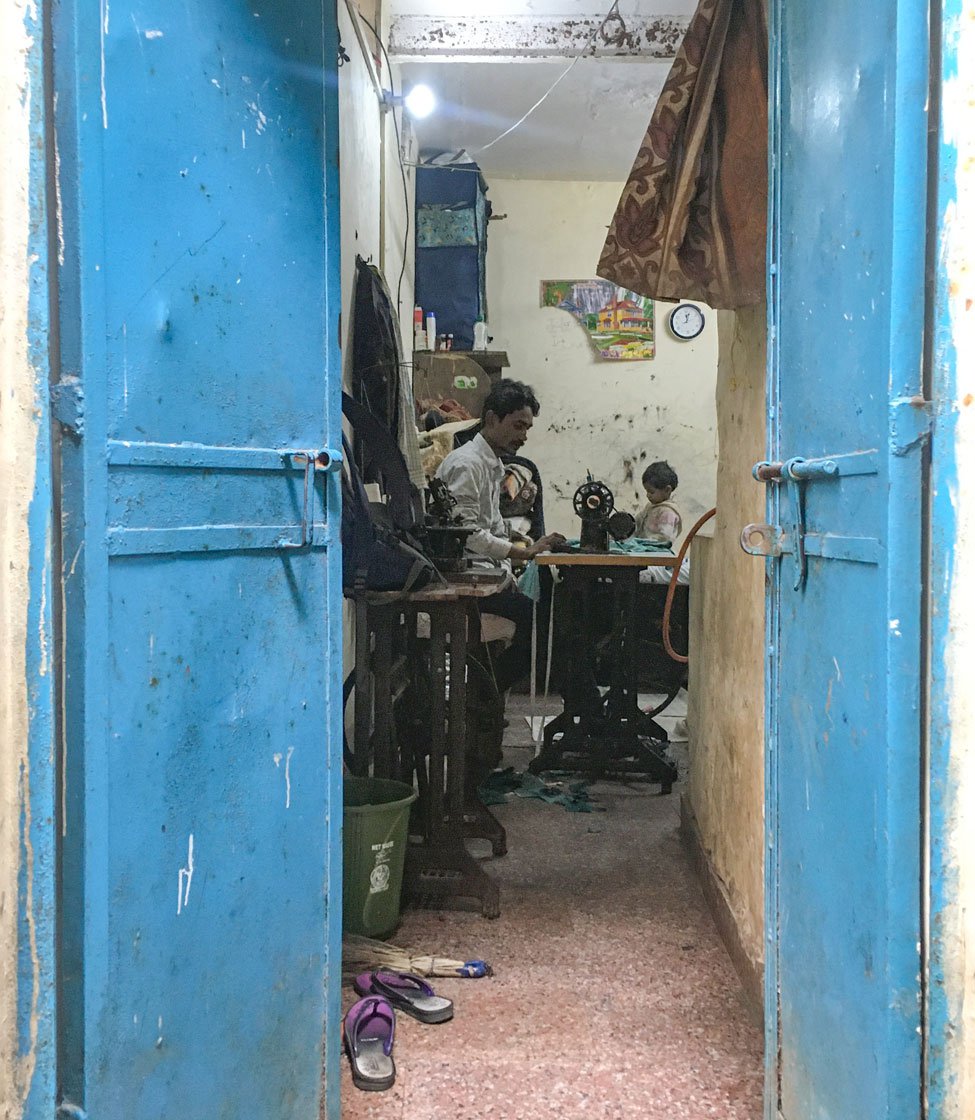
Left: Rukhasana’s husband, Mohammed Wakil, and their children outside their rented room. Right: He works in the same room, tailoring clothes
on his sewing machine
Rukhsana has lost count of her visits to the fair price shop since September 2021.
“The dealer here told me the ration card is blocked from Bihar, and asked me to go to Bihar and get all our Aadhaar cards linked with my ration card,” she said. “My father-in-law went to the Ration Office in Benipur, but he was told to submit all our Aadhaar cards at a Ration Office in Delhi instead. When we enquire in Bihar, they tell us to get it checked in Delhi. In Delhi, they speak of getting it checked in Bihar.”
*****
Rukhsana prefers living in her village, Mohan Bahera, which was merged with 23 others to form Benipur Nagar Parishad in Darbhanga in 2009. “I feel rested in our village. All I have to do is prepare food, eat and take care of the children.” In Delhi, it is a race to finish work at her employers’ homes before returning in time to cook for her own family.
Shadipur Main Bazaar’s residential quarters are squat buildings with tiny homes gathered around a main market road. A small, packed room here has been Rukhsana’s home since September 2021, at a rent of Rs. 5,000 a month. There is a kitchen platform on one side, a single bed on the opposite side, Wakil’s sewing machine and a huge table for cloth measurements in between. A toilet is squeezed into the right corner near the entrance.
Rukhsana and her three younger daughters – Najmin and Jamjam, 9 and 3, and Asiya, who is a year old – sleep on the iron bed. Wakil, Kapil, 11, and eldest daughter Chandni, 13, sleep on a cotton mattress they spread out on the floor.
“In villages, people leave their animals in such rooms. I am not joking. They put their livestock in better rooms than this,” said Wakil. “Here, people themselves become animals.”
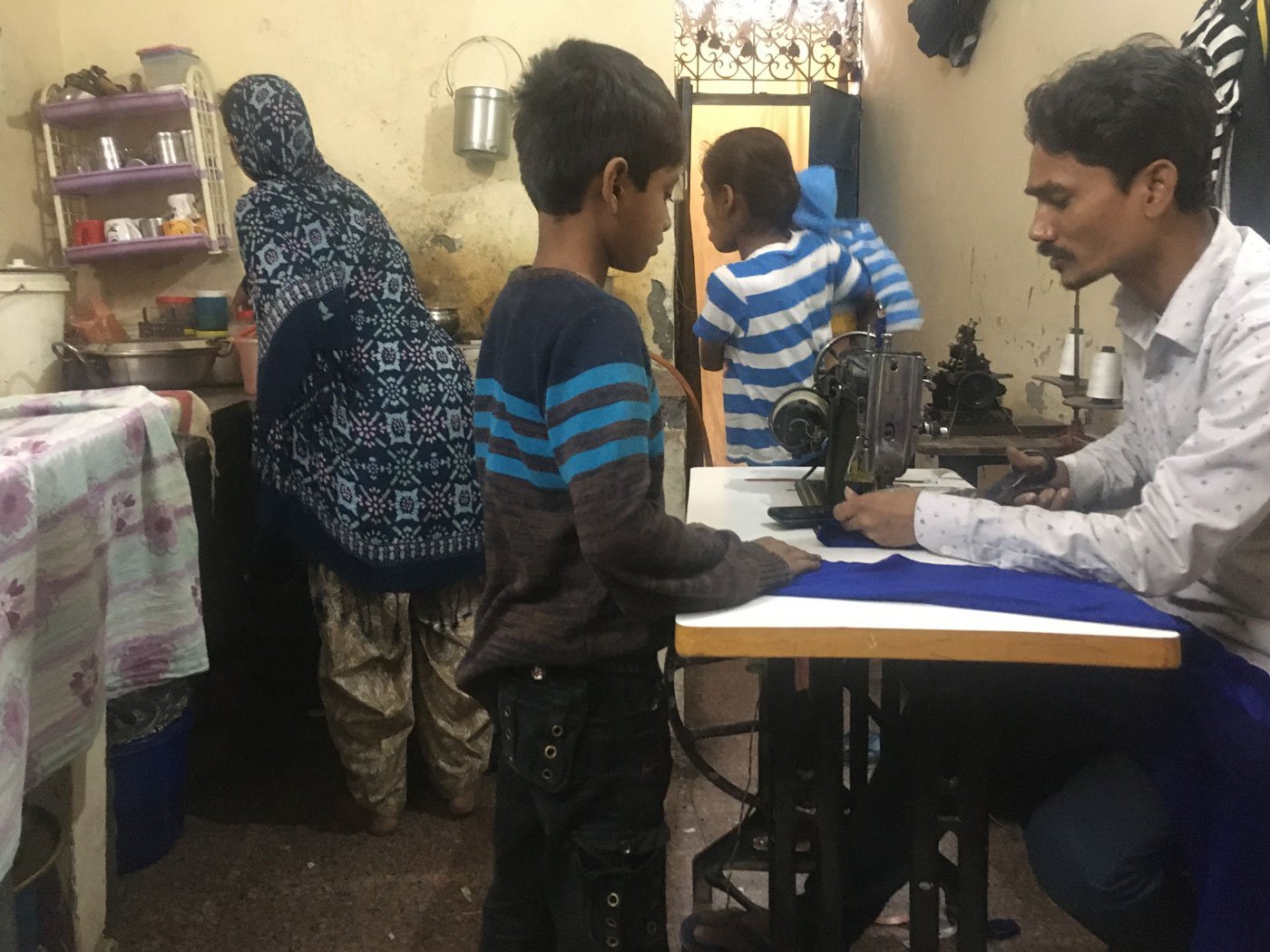
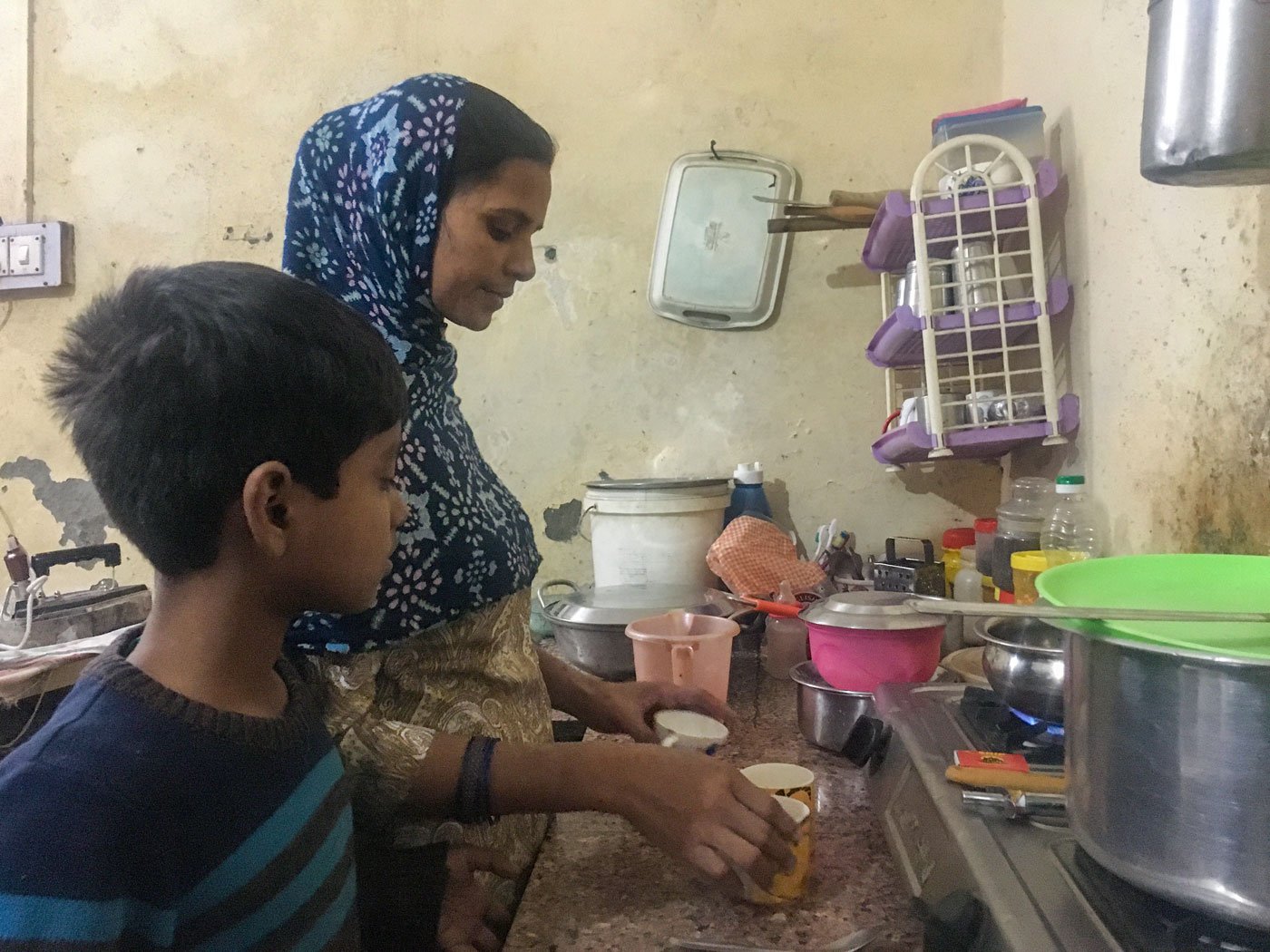
The family has been living in the small, packed room since September 2021, paying a rent of Rs. 5,000 per month
Under the NFSA, 75 per cent of India’s rural population and 50 per cent of the urban population are entitled to buy subsidised foodgrains — rice at Rs. 3 a kilo, wheat at Rs. 2 and coarse grains (millets) at Re. 1 a kilo – from designated fair price shops. ‘Priority households’ are entitled to 5 kilos of foodgrains per month, per member listed on the card, while the most vulnerable households, or “poorest of the poor”, are entitled to up to 35 kilos of foodgrains every month under the Antyodaya Anna Yojana (AAY).
Six of Rukhsana’s family members are registered on her priority household card. Each is entitled to 3 kilos of rice and 2 kilos of wheat per month.
Eligibility for these categories are evolved by state governments using various consumption and income criteria. For example, in Delhi, households with an annual income of less than Rs. 1 lakh are
eligible for inclusion
in the priority household and AAY categories. The applicable category is determined by the social, occupational and housing vulnerabilities of each family. However, even with income eligibility, households owning a four-wheeler for personal use, or a building or land in specific areas of the state, or with an electricity connection above 2KW, are excluded from these categories. Families receiving subsidised food under another scheme, or where a member is an income tax payee or a government employee, are not eligible either.
In Bihar, eligibility is determined by the exclusion criteria. The
guidelines
for rural areas of the state disqualify any household owning a motorised vehicle (three- or four-wheeler) or a house with three or more
pucca
rooms or 2.5 acres or more irrigated land. A household where a member earns more than Rs. 10,000 per month or is a government employee is excluded.
In May 2020, the Centre announced the nationwide rollout of the One Nation, One Ration Card scheme, launched as a pilot scheme in 2019. This allows ‘portability’ of a ration card, wherever it may be registered, once it is ‘seeded’ with the cardholder’s Aadhaar number. This enables anyone in Rukhsana’s situation to avail their PDS entitlements from any outlet in the country.
The Delhi government implemented the scheme in July 2021.
*****
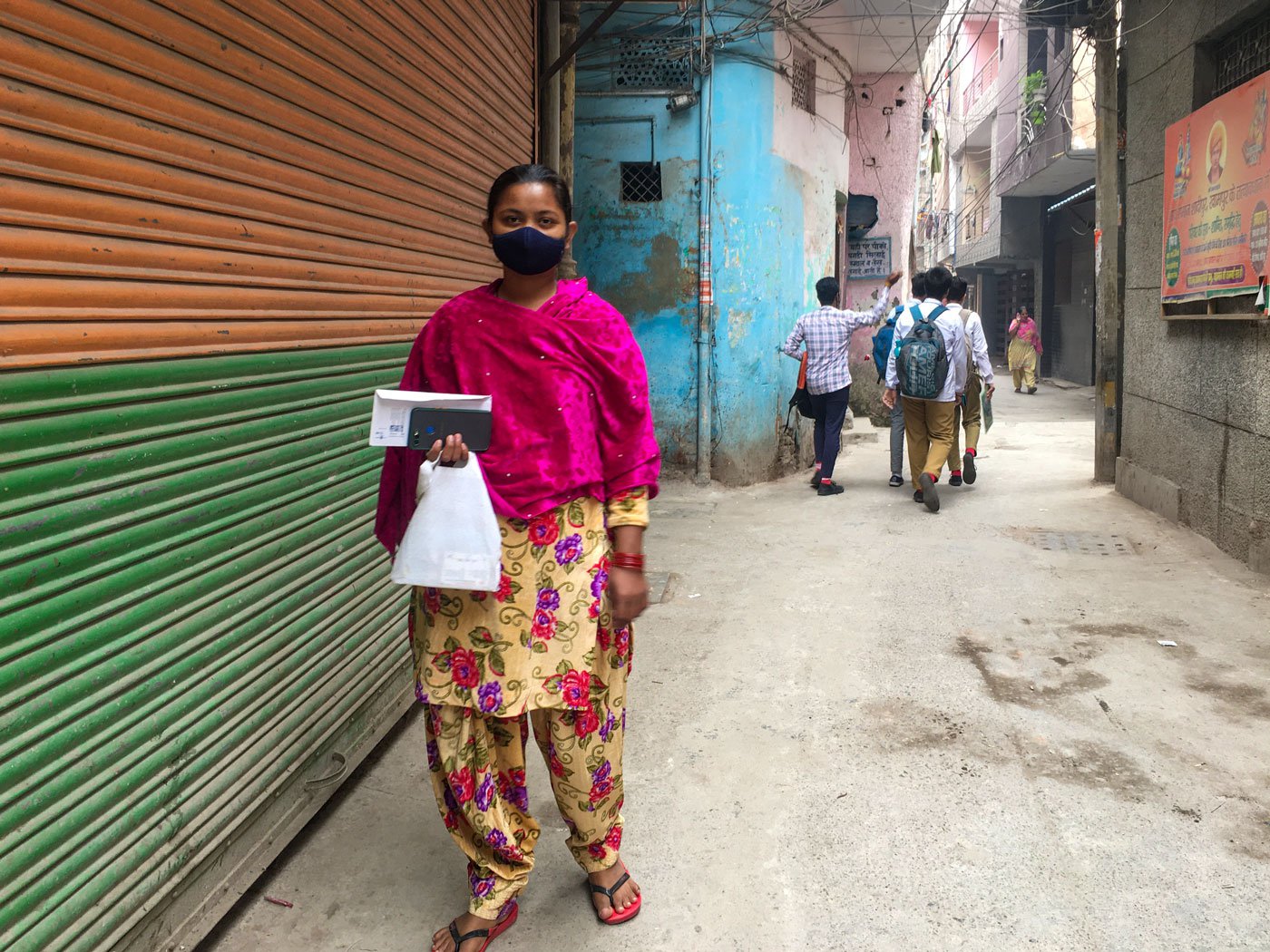
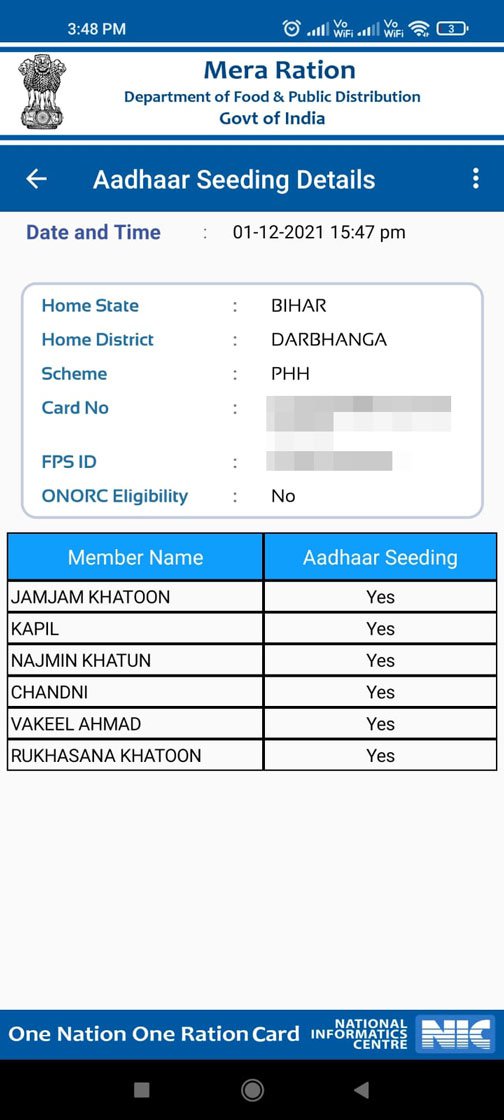
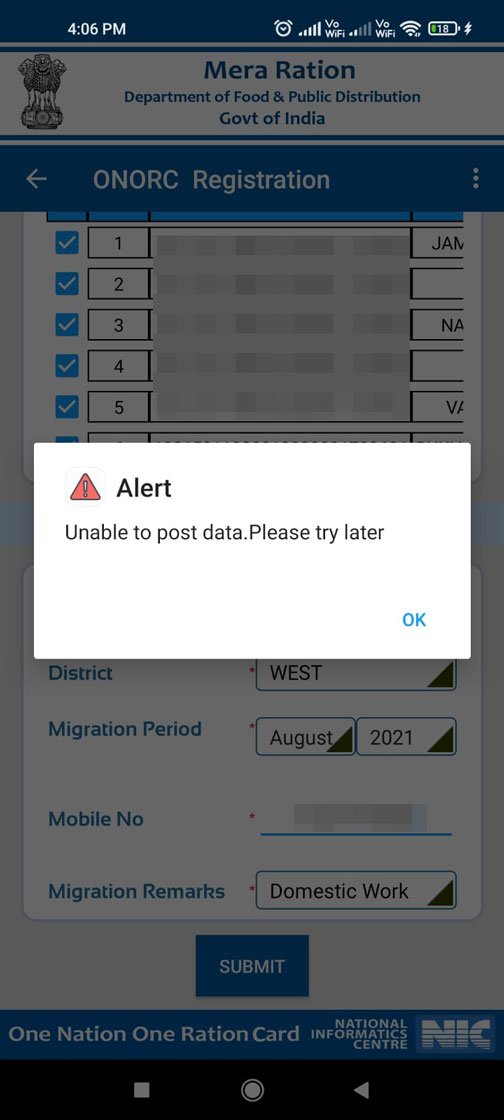
Left: Rukhsana’s sister Ruby Khatoon. Centre: The record on Mera Ration app showing the Aadhaar details of Rukhsana's family as ‘seeded’. Right: The pop-up message when trying to update Rukhsana's migration status for the One Nation One Ration Card scheme
Every day, Rukhsana cleans, mops and scrubs utensils from 8 a.m. to noon, and again from 4 p.m. to 7 p.m. On December 1, 2021, Rukhsana’s sister Ruby and this reporter went to the Food and Supplies Department’s circle office in Patel Nagar to ask why Rukhsana was unable to access her ration in Delhi.
Download the ‘Mera Ration’ mobile application and check if all family members’ Aadhaar cards are seeded, we were advised. The web portal was not working at their office that day.
That afternoon, we fed Rukhsana’s ration card and Aadhaar details into the application. Barring Asiya, the one-year-old child, all the other family members’ Aadhaar cards appeared ‘seeded’. But on trying to update Rukhsana’s migration information for ONORC registration, a pop-up message appeared: ‘Unable to post data. Please try later.’
Another attempt on December 7 yielded the same pop-up response.
Eventually, one PDS dealer said the IMPDS server sometimes starts functioning for migrants living in Delhi at the same time that distribution begins in their native villages. Delhi’s beneficiaries had received their quota before the evening of November 31. The next round of distribution in Bihar would begin from December 5, the dealer said.
Rukhsana had returned to the ration outlet on December 5, still hopeful. The machine responded: ‘Ration card not found in IMPDS’.
Since September 2021, Rukhsana has had to depend on help from her employers to provide food for the household. “One gives me some raw vegetables. Sometimes another employer gives us a portion of her ration collected from the outlet.”
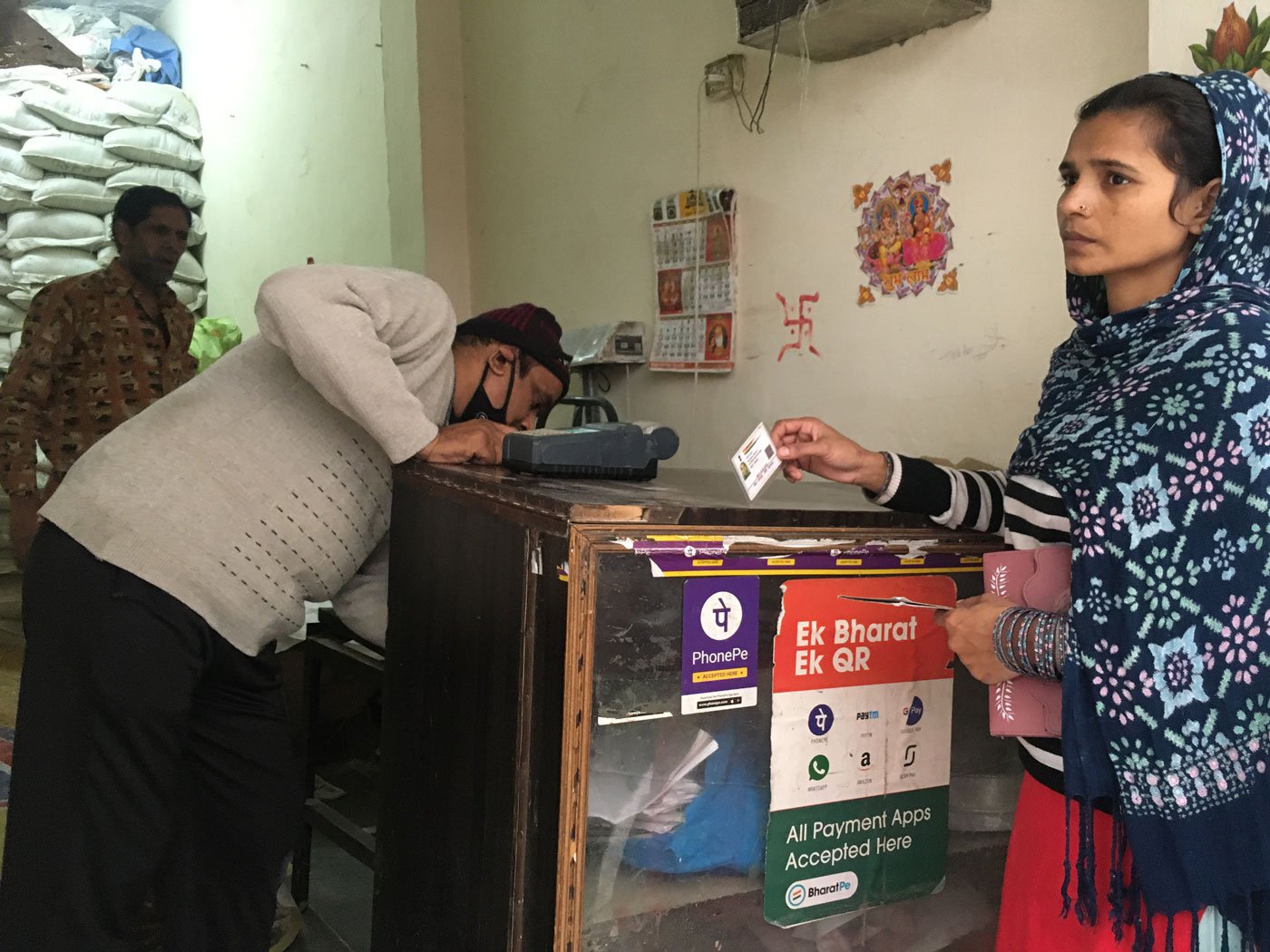
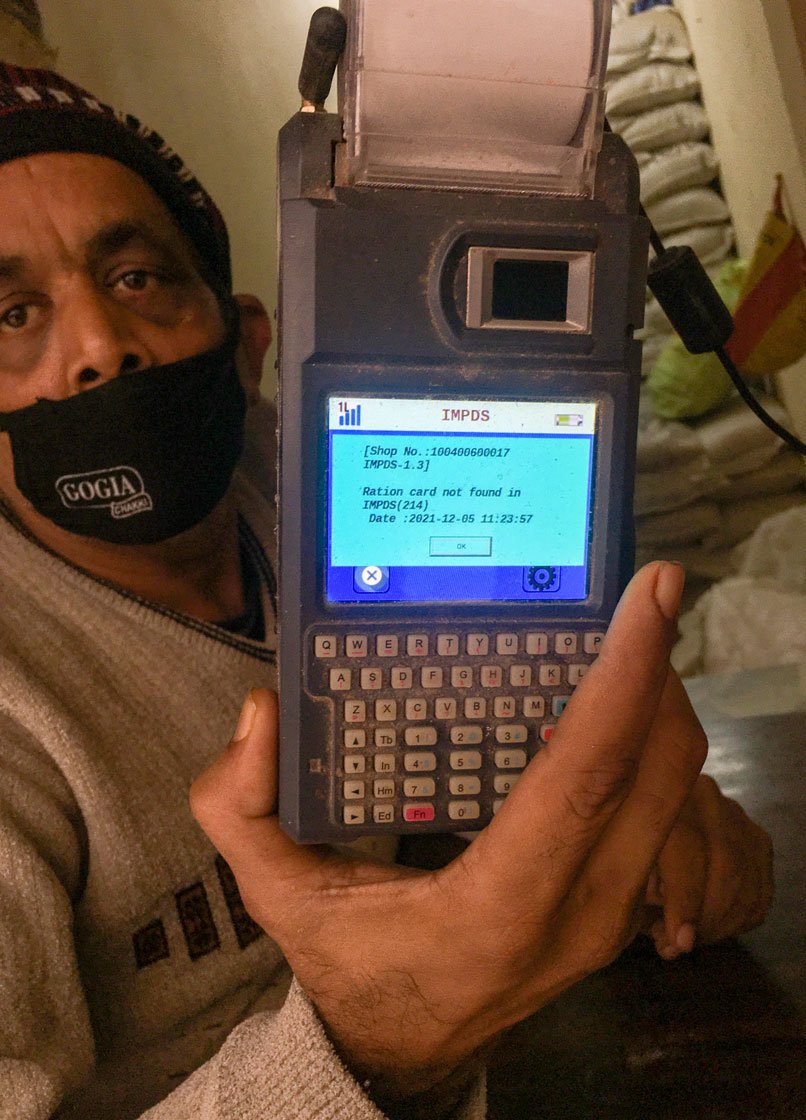
Left: Rukhsana Khatoon at a fair price shop in Shadipur Main Bazaar. She has lost count of her visits to the shop. Right: The fair price shop dealer Bharat Bhushan shows the message he receives when he feeds Rukhsana's Aadhaar number in the ePOS machine
“ Kab se koshish kar rahi hun [I have been trying for so long],” Rukhsana said, her frustration evident. Others from Bihar who had returned with her to Delhi had collected their quota at least three times between August and December 2021.
The dry ration kit
distributed
in lieu of mid-day meals to government school students in Delhi since December 2020, was useful. Her eldest two children, Kapil and Chandni, study in a government school in Patel Nagar. Each child received 10 kilos of rice, 2 kilos of
dal
and a litre of refined oil. The kits were stopped after mid-day meals resumed at the school in March 2022, Rukhsana says.
*****
Multiple attempts to call the Delhi government’s ONORC helpline number did not yield any result. The network was always ‘congested’.
Ration dealer Parwej Alam in Benipur, Darbhanga, who has operated a fair price shop since 1991, said over the phone that Rukhsana’s was not the sole case. “Many migrant labourers from Delhi have been calling to tell me that they are unable to collect their rations in Delhi,” Alam said.
The district supply officer (DSO) of Darbhanga, Ajay Kumar, said over the phone that things were working smoothly at his office. “The officials in Delhi would tell you exactly what the issue is. None of the other states are reporting any issues [except Delhi],” he said.
Kuldeep Singh, the additional commissioner at Delhi’s Department of Food and Supplies, said over 43,000 transactions had already taken place for migrants from Bihar in December. “It could be a particular case. There is a possibility that the beneficiary’s name may have been deleted in Bihar,” he said.
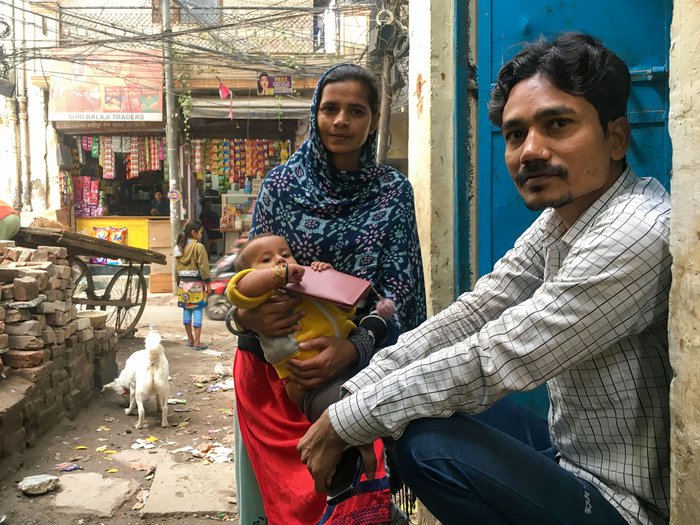
Rukhasana and Wakil migrated from their village in Bihar's Darbhanga district to find work in Delhi
In May 2020, the Centre announced the nationwide rollout of the One Nation, One Ration Card scheme. This allows ‘portability’ of a ration card, wherever it may be registered, once it is ‘seeded’ with the cardholder’s Aadhaar number
On February 24, 2022, Rukhsana and her family travelled to Darbhanga to attend a wedding in the family. On February 26, the day after they arrived, she sent her daughter to the fair price shop in Mohan Bahera.
The family succeeded in collecting their ration there that month.
However, when Rukhsana went to collect the ration on March 21, before leaving for Delhi, the dealer in the village said her ration card had been cancelled. “
Upar se band ho gaya hai
[it was stopped by higher-ups],” he told her.
“It was working last month. How did it get cancelled?” Rukhsana asked the dealer.
Again, she was advised by the dealer to take all the Aadhaar cards of her family members to the Block Ration Office in Benipur. The dealer suggested that she try taking the Aadhaar cards to the office in Delhi too.
DSO Ajay Kumar said that a ration card could not be cancelled in this manner. He suggested, however, that in such a situation, Rukhsana and her family could apply for a new ration card.
Back in Delhi, Rukhsana said she was resigned to the circumstances that don’t show signs of changing any time soon. “
Ration toh mera band hi ho gaya hai
[I am not getting my rations any more].
”
